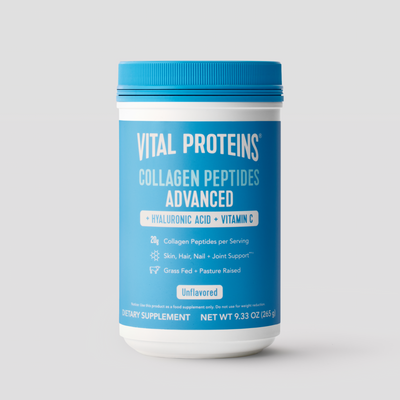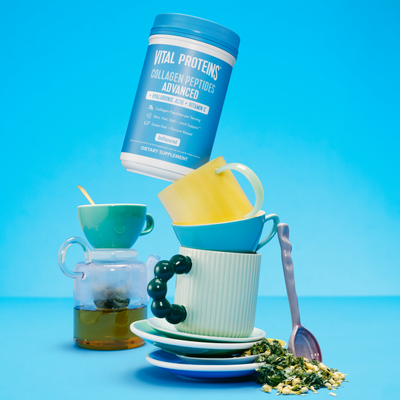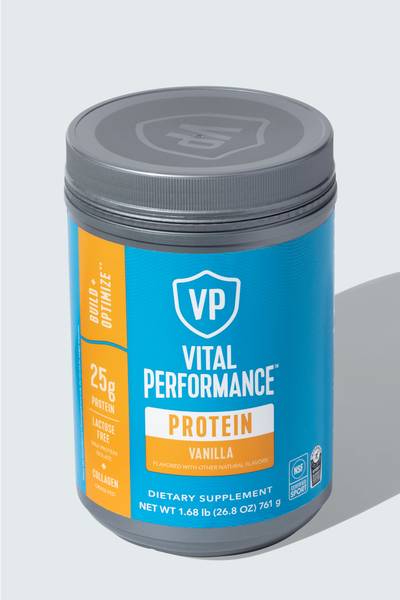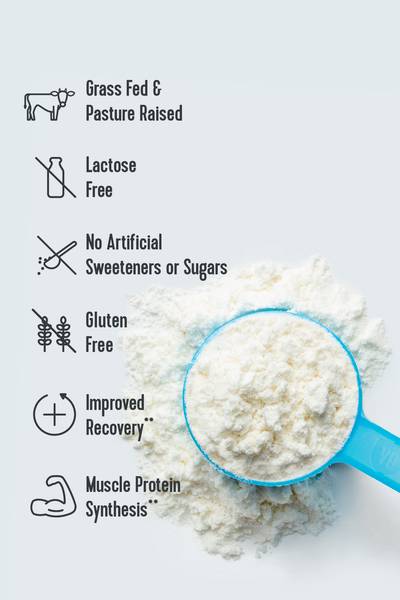Knowing which supplements to take on a daily basis can be confusing. Add in complicated scientific names, every letter from a to z (do you take B or C?), vitamin hype (yes, that's a real thing) and it's no wonder many people pop in a multivitamin and call it a day. Or worse – don't take anything at all.
To help clear up any confusion and get you on the path to ultimate wellness, we turned to the health experts to simplify this very important question: what supplements should I take?
what supplements should I take daily?
There is no one-size-fits-all answer to "what supplements should I take daily?" according to Functional Nutritionist, Olivia Peláez, MS, who serves as Education Coordinator at Vital Proteins®. "That's because each individual has unique nutritional needs that vary based on their lifestyle, dietary preferences, and allergies/intolerances," she tells Lively. "Additionally, people may seek out specific supplements that offer functional benefits for example to support sleep or reduce mild stress."
But that's not to say that essential vitamins don't exist. One that Dr. Dimitar Marinov, MD, PhD, often sees a deficiency in is vitamin D. "Adequate levels of vitamin D have been shown by studies to provide benefits for physical performance - optimal levels boost speed and strength in athletes," he says.**
what supplements actually work?
First off, when it comes to nutrients, Emily Danckers, MS, RD, and nutrition coach, says that the motto should be "food first." "Food is always the best way to get the vitamins, minerals, protein, etc. that you need in a day," she says.
But when you need that extra boost – or when you're eating a special diet, such as vegan - these are the supplements the experts recommend most:
Omega-3 fatty acid (DHA and EPA): "A significant body of research shows the brain and heart health benefits of these long-chain fatty acids, but they need to build up in the body to get to work,**" says Carielle Nikkel, MS, RD, CHC and Vice President of Nutritional Support at Persona Nutrition.
Collagen: In addition to benefiting hair, skin and nails, Danckers says that collagen – the body's most abundant protein – has been shown to strengthen joints, ligaments and tendons.**
Vitamin D: As mentioned earlier, most of the population is deficient in vitamin D. It's an especially important supplement for those living in places with less sun. "Taking vitamin D during winter months has been shown to maintain adequate vitamin D levels during the winter," says Danckers.

what supplements should I take for working out?
Move over, protein! Dr. Marinov says that the most researched and effective supplement you can take for improving your strength and performance while working out is creatine: "It works by supplying your muscles with more ATP, which is the main energy unit in the body."**
Don't miss out on these other important exercise supplements: collagen for joint and muscle recovery and arginine and ornithine for high-intensity interval training. "Arginine and ornithine is a power-couple amino acid combination," says Nikkel. "Together, they can help your body metabolize the excess ammonia that accumulates during intense exercise and causes fatigue."**
Boost your workout routine with our Vital Performance™ line! Shop now.
The kind of supplements you take also depends on your fitness goals. For example, if your goal is resilience and recovery, Nikkel recommends adaptogens.
"Regular exercise puts stress on your body, and adaptogens like fermented ginseng and ashwagandha can help make you more resilient to the effects of everyday stress,"** she explains. Looking to get pumped up before your workout? Consider taking a caffeine supplement, adds Danckers.
what supplements should I take to build muscle?
When strong gains are what you're after, consider creatine. Danckers tells Lively that it may lead to muscle growth when paired with increased calorie intake and resistance training.
You may have also heard of branched chain amino acids, or BCAA, in many fitness circles. Nikkel explains that these are involved in muscle metabolism and help build muscle mass. "BCAA are naturally found in high protein foods like eggs and meat, so supplementation is particularly helpful for people who don't get a lot of protein or animal products in their diet."**
If you're not seeing muscle growth right away, keep in mind that supplements take time to work their magic. "Unlike prescription medications, which are designed to start working immediately, supplements are nutrients that need to build up in the body over time," Nikkel tells Lively. "That's why it's so important to take your vitamins daily."
Related Articles
best supplements to take
"This will also depend on your goals, but for general overall health, you'll want to integrate a probiotic, B complex and omega-3 fish oil,” explains Lisa Richards, nutritionist and author of The Candida Diet. "It will ensure your gut health is optimal to help boost immune health and inflammation."**
In other words, it's kind to your gut when those chili fries aren't. Next up is a B complex vitamin, which "gives you adequate nutrients for cellular health, energy, and support for just about every body process, like the metabolism and creating red blood cells."**
Unless you're eating fish and other fatty acids for breakfast, lunch and dinner, you're probably not getting enough Omega-3's. "This nutrient is necessary to balance out the amount of omega-6 fatty acids in the diet, which are pro-inflammatory," says Richards. "It is also beneficial for heart and joint health."**
Don't discount a simple multivitamin, either. Richards says that a lot can be solved with it. "A multivitamin will help mitigate and prevent any potential nutrient deficiencies," she says, adding that this should be used as a supplement to your regular diet, rather than as a way to meet all of your nutritional needs.


















